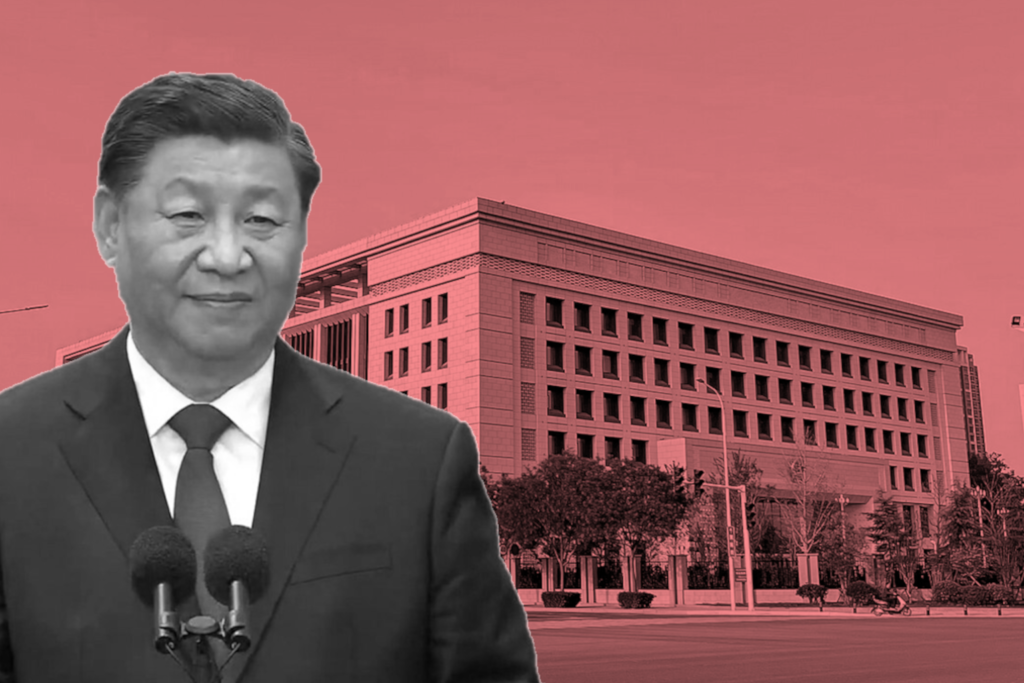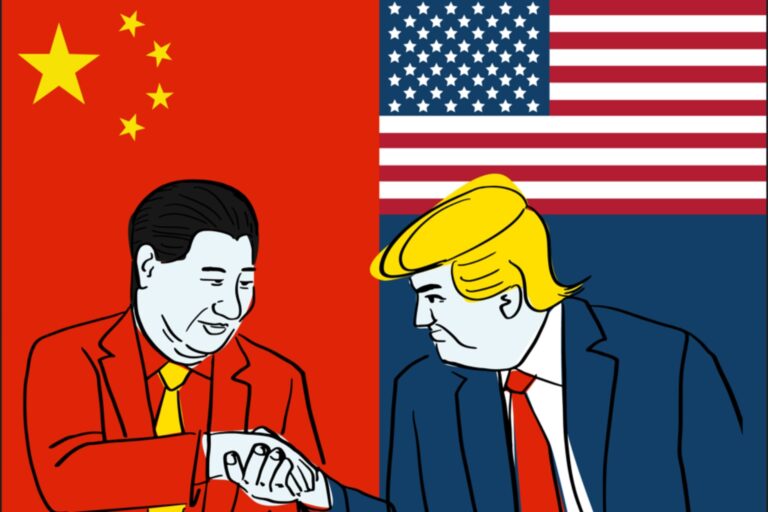U.S. observers have long complained that Chinese firms steal intellectual property (IP) from American companies, universities, and research institutions.¹ Most of these complaints stress that the government of the People’s Republic of China (PRC) directs this theft. Other analysts focus on military applications of the theft. Both arguments are true, but presume that the problem’s ultimate source is policy. It is not. The fundamental source of the problem is China’s political system. The current Chinese political, legal, economic, and business structure disincentivizes innovation in favor of acquisition and imitation both domestically and internationally. IP theft is not simply a longstanding Chinese government policy; it is an inherent feature of the Chinese Party-State-Economy. Therefore, addressing the problem is far more challenging than most American policy makers and business leaders understand. This essay is for anyone who wants to defend U.S. IP from theft. My intention is to help Americans understand the origins, character, and scope of the threat, as well as some possible mitigations. Sadly, no comprehensive, effective, short-term solution exists.
IP theft is endemic to the Chinese political-economic system internally as well as externally. Therefore, to fully comprehend the threat and why it is impossible to eradicate, U.S. policy makers and business leaders must understand the massive incentives all Chinese companies face to steal IP. I start by examining those incentives, which stem from the PRC’s Party-State system. Next, I explain why that system discourages innovation, despite the frequently articulated contrary intentions of Chinese leadership. Third, I outline the connection between lack of innovation and IP theft. Finally, I conclude with recommendations for the U.S. government and private sector.
Incentives and Behavior Inside China
Compared to the problem of international misappropriation of IP, the domestic problem inside China has garnered far less attention. Nonconsensual appropriation of Chinese companies’ technology and other IP, whether State-Owned Enterprises (SOEs) or private firms, is endemic. This phenomenon merits our consideration because even absent Chinese state direction and assistance, Chinese companies will continue to steal IP from each other and foreign firms.
More specifically, the current system of IP protection inside China is a politicized, legally unregulated minefield for any Chinese company—not just foreign firms. The Chinese system imposes such high risks on any company trying to innovate, that the far safer route for businesses is to forgo innovation altogether in favor of imitation, acquisition, and sometimes adaptation. Until that risk/reward ratio changes inside China for Chinese companies, the West can expect no meaningful difference in the international behavior of their Chinese counterparts.
Judging only by the numbers of laws and regulations passed by the National People’s Congress, ostensibly the supreme state authority of the PRC, one might be confused by the description of China as “lawless.” On IP protection alone, one list shows four relevant articles in the Chinese constitution (Articles 13, 20, 22, and 47); one law against unfair competition; four patent laws; three copyright laws; six trademark laws; 23 other IP-related laws; and 101 implementing rules and regulations. China also has laws on consumer protection, product safety, the environment, human rights, property rights, and myriad other issues. However, as many observers have so well documented, these laws mean nothing. China has two systems: the formal fairy tale written into its Constitution and laws, and the harsh reality of CCP dictatorship and caprice. Judges, lawyers, police, and regulators are subordinate to the CCP; and private businesses without guanxi (connections) and a baohusan (umbrella) in the CCP cannot hope to enforce contracts, conduct discovery, hire a lawyer, or even publicly complain without fear of arrest, loss of job or business, internal exile, and imprisonment.
Firms in the PRC will continue to pursue both consensual and illicit acquisition of U.S. technology until China undergoes profound, fundamental reform and embraces the rule of law. Regrettably, such reform is not something that the Chinese Communist Party (CCP) is prepared to allow. This means that until or unless the CCP subordinates itself to the rule of law–that is, relinquishes its own legal supremacy–it is powerless to stop international IP theft, even if it were to change its policy. The argument here is that the absence of rule of law in China discourages innovation and leads Chinese firms to illicit acquisition and imitation of technology from both domestic and foreign sources. This in turn, further disincentivizes innovation among Chinese firms, and the pernicious cycle continues.
This causal connection is woven into the fabric of the Chinese political system and economy. U.S. Government sanctions and prosecutions against Chinese companies won’t change their behavior and will impose only marginal costs on Chinese companies. U.S. companies therefore have two options for participating in the Chinese market: they can disengage completely from trade with China or they can take steps to protect themselves.
The first option is neither economically nor politically feasible for many U.S. firms. China accounts for a fifth of the world’s population and a significant source of profits for American companies. Moreover, even U.S. businesses that have no overt, intended, or even recognized ties to the PRC must rely on a thorough Chinese penetration of the global supply chain. China touches everything: the food we eat; the clothes we wear; the cars we drive; and the phones and networks we talk on. Disengagement is practical impossible. Self-defense is the only option.
The problem is getting worse. In March 2013, Prime Minister of China Li Keqiang spoke in favor of reducing impediments to private sector investment and opening the Chinese economy. He said, “Reform is about curbing government power.” However in October 2022, during the Twentieth Party Congress of the CCP, Xi Jinping, the General Secretary of the CCP, removed Li both from his position as Prime Minister and from membership on the Central Committee of the CCP.
At the same Congress, Xi called for expanding government power, closer integration of the Party and State, and for an increased role of the state and SOE in the economy. Since then, Xi dictated that the Party will take ownership stakes in selected private sector firms, and that even small companies must host Party representatives inside their walls. Politics is not retreating from the private sector in China. It is encroaching even further. And most distressing, the CCP holds itself above the law, both in word and deed.
Implications for Innovation
This totalitarian system, along with its other more pernicious consequences, also discourages and depresses innovation, which in turn encourages IP theft. Jeremy Haft exhaustively catalogs the failures of most businesses in China to innovate. Most of what Americans think is made in China is merely assembled in China. For example, the Chinese do not make the iPhone; they assemble American, German, Taiwanese, South Korean and Japanese components for a Taiwanese company located in China. Per Haft, Chinese companies lack the skills to manufacture those components independently. Many of the smaller Chinese companies that do try to innovate at U.S. levels find their work appropriated by larger, better politically connected Chinese companies. This is not to say that the Chinese do not innovate. They clearly do. The point is that they innovate less than they could because of the negative incentives the Party-State imposes. Innovation is simply too risky, too expensive, and too time consuming compared to theft.
Aside from the well-founded, ever-present fear of appropriation by better connected rivals, four other factors also conspire to discourage innovation in China, especially within small companies: (1) the requirement to pay bribes as protection; (2) a political culture that values deference and hierarchy; (3) the Chinese government policy of subsidizing SOEs; and (4) lack of capital for small and medium sized companies.
Guanxi (connections), baohusan (umbrellas), and bribes cost money that smaller companies cannot afford. Desmond Shumdescribes paying thirty percent of his projects’ revenues to Zhang Beili, the wife of Prime Minister Wen Jiabao. Shum asserted that such a fee was not unusual. Assuming this kind of fee is typical, then larger, better funded firms can afford to pay bribes, while smaller, lesser funded companies cannot. Without political protection, innovating simply becomes too great a risk.
A second factor discouraging innovation is the CCP value system or culture, that is, the habits, traditions, and values specifically and explicitly articulated by the CCP and transmitted through the Chinese educational system. These include deference to tradition, hierarchy, and authority; censorship and fear of censorship; reverence for harmony; suspicion of nonconformity, transparency, and conflict; and an arbitrary and politicized enforcement of rules.
Innovation as practiced in much of the world is incompatible with all of these elements. Innovation in the Western sense is nonconformist, open, anti-hierarchical, conflictual, transparent, and decidedly unharmonious. The first stage of this innovation process begins with the free exchange of new ideas. Censorship and fear of censorship, which permeate in the Communist Party-State, depress innovation. In addition, the standard for evaluation and selection of ideas must be transparent and based on rules and standards accepted by all. Zhao argues that this is not the norm in China. Instead, the education created and directed by the CCP focuses the one right way to solve problems, which is dictated from above. Furthermore, Chinese students do not spend as much time learning to work in teams or seeing the benefits of constructive conflict. Thus, they enter the workforce already acculturated to a set of values incompatible with innovation.
The third factor stifling innovation is the Party-State policy preference for SOEs over private firms. President Xi celebrates innovation but simultaneously insists on values incompatible with innovation, including deference to the CCP and conformity. He also supports increased investment in SOEs, and decreased emphasis on exports in favor of domestic consumption. The last element is noteworthy because instead of having to compete internationally to meet the higher requirements of many export markets, Chinese companies need only satisfy the lower demands of the domestic market. This dynamic becomes yet another disincentive for innovation.
Xi’s hostility to the private sector and strong preference for SOEs deprive smaller, privately owned companies of necessary capital directly. His policies also work indirectly to steer capital away from private sector innovators by frightening investors away. China has suffered net capital outflows for more than a decade. This is yet another factor disincentivizing innovation.
Incentives to Appropriate
For companies operating within U.S. legal and regulatory frameworks, innovation also carries an array of risks from start to finish. Companies can run out of money; encounter unsolvable technical problems; run afoul of government regulations; succumb to a higher quality, lower cost, faster competitor; or otherwise fail to make and execute good decisions on time. At the same time, failure to innovate carries even larger risk of market obsolescence.
For Chinese companies, a lack of domestic IP protection creates additional risks that their American, Japanese, and European counterparts do not have to face (at least domestically). Yet, those risks do not apply to all Chinese companies equally. Politically connected firms, including SOEs, do not face the same consequences for failing to innovate. These businesses have other means of survival and even growth, including implicit and explicit state subsidies, such as access to state credit and the mandate that all Chinese companies source 70 percent of their supply chain from SOEs. And of course, Chinese enterprises that find innovation too risky or difficult can take a shortcut to advance their technology and processes by stealing—which many do—from less connected, less protected Chinese private sector firms as well as from foreign companies. Appropriation and imitation are faster, less expensive, and more efficient than innovation, especially when both the probability and consequences of getting caught are low.
Thus, the incentive to appropriate rather than innovate is high for all Chinese companies. That does not mean that all engage in illicit appropriation. It means that given the system they inhabit, all Chinese firms, regardless of size, success, or political influence, have an incentive to steal other firms’ IP (and no disincentive not to). Bigger, stronger, better connected firms prey on each other—as well as on smaller, younger companies and foreign businesses. Smaller, less connected firms that innovate must constantly calculate that better connected competitors will steal their products, designs, business models, or other advancements. Many companies choose not to risk putting in all the work just to lose their business to a rival with better connections in the CCP. These firms must choose between stasis (e.g., low paid, low tech, low value-added assembly work) or appropriation.
Many choose appropriation without compunction. Apart from the incentives, many Chinese companies claim to believe that IP appropriation is normal because that is what they see every day in the environment in which they operate. Many smaller Chinese companies report that they are not aware of IP laws and regulations, and that when they are, they believe that these restrictions benefit larger companies. The logical inference is that the smaller are justified in appropriating other IPs. The CCP also engages in mixed messages, exalting the rule of law (although “with Chinese characteristics”) while repudiating the actual requirements of rule of law. In addition, it is common for Chinese to deny any guilt but then implicitly justify IP theft as compensation for historical Western theft of Chinese innovations, such as gunpowder, silk production, the umbrella, the printing press, paper, and fiat currency. The claim is that the Western states did not complain about IP theft when they were the thieves.
Finally, Chinese firms steal IP because the probability and consequences of detection and punishment are low. Within China, firms with sufficient Party-State guanxi act without impunity. For foreigners, recourse is also fraught as it is difficult to serve Chinese companies lawsuit complaints because the CCP ignores its obligations under the Hague Convention and does not process service. This practice effectively grants Chinese violators of foreign patents immunity from foreign legal action. Moreover, even in the U.S., it is difficult to procure injunctions on patent infringements while cases proceed.² Therefore, the Chinese companies have little to fear from appropriating foreign intellectual property.
Conclusion
All U.S. companies are vulnerable, and nothing they can do will end the threat of IP theft at the macro level. However, U.S. policy makers and companies can reduce private sector loss of their unique IP and even seek compensation in the event of loss. Government can support businesses with an enhanced and amended Economic Espionage Act. Congress can also authorize and fund the Department of Justice to support companies that have been wronged by foreign actors. This support can take the form of legal assistance in civil actions, filing criminal charges where appropriate, and funding for American companies under lawfare assault. Additionally, Congress can authorize Treasury to name, shame, and sanction any company that knowingly abets or benefits from doing business with a foreign company that has stolen U.S. IP. Companies themselves must play a role in their own defense. They need to be aware of the problem and their vulnerabilities, enhance their security, periodically check for losses, and to the degree possible, diversify away from the PRC. These actions will not eradicate the problem but will raise the costs for IP thieves and offer some measure of protection for companies that undertake effort for their own defense.
Glenn Chafetz is the Director of 2430 Group, a non-profit, non-partisan research institution that focuses on state-sponsored espionage against the U.S. private sector. Glenn has more than 30 years of experience in government, academia, and the private sector. He spent most of his career at CIA, where he served three tours as Chief of Station and was the Agency’s first Chief of Tradecraft and Operational Technology. Glenn also served in the State Department, and has held teaching and research positions at a number of universities, most recently American University, and the National Intelligence University.
Bibliography
Blair, Dennis C. and Keith Alexander. “China’s Intellectual Property Theft Must Stop.” New York Times, August 15, 2017. https://www.nytimes.com/2017/08/15/opinion/china-us-intellectual-property-trump.html?sear chResultPosition=1
Hannas, William C., James Mulvenon, and Anna B. Puglisi, Chinese Industrial Espionage: Technology Acquisition and Military Modernization. London: Routledge, 2013. https://doi.org/10.4324/9780203630174
Midler, Paul. What’s Wrong with China. Hoboken, NJ: John Wiley and Sons, 2017. https://www.wiley.com/en-us/What%27s+Wrong+with+China-p-9781119213734
University of Iowa Law Library, updated June 23, 2022. https://libguides.law.uiowa.edu/c.php?g=103215&p=669096
Constitution of the Communist Party of China. 2022. Revised and adopted Oct. 2022. https://news.cgtn.com/news/files/Full-text-of-Constitution-of-Communist-Party-of-China.pdf
Rechtschaffen, Daniel. “How China’s Legal System Enables Intellectual Property Theft.” The Diplomat, November 11, 2020. https://thediplomat.com/2020/11/how-chinas-legal-system-enables-intellectual-property-theft /
Shum, Desmond. Red Roulette: An Insider’s Story of Wealth, Power, Corruption, and Vengeance in Today’s China. New York: Scribner, 2022. https://www.simonandschuster.com/books/Red-Roulette/Desmond-Shum/9781982156169
Haft, Jeremy R. Unmade in China: The Hidden Truth About China’s Economic Miracle. Cambridge, UK: Polity, 2015. http://www.unmade-in-china.com/
Jacobs, Andrew. “Li Keqiang Says He Seeks a Just Society.” New York Times, March 17, 2013. https://www.nytimes.com/2013/03/18/world/asia/li-keqiang-chinas-premier-offers-plan-of-eco nomic-and-social-reforms.html
Xi, Jinping. 2022. “Full text of Xi Jinping’ Address to the 20th Party Congress of the Communist Party of China.” Bloomberg, October 18, 2022. https://www.bloomberg.com/news/articles/2022-10-18/full-text-of-xi-jinping-s-speech-at-china-20th-pa rty-congress-2022
Freedom House, China country report, 2022. https://freedomhouse.org/country/china/freedom-world/2022
Zhao, Yong. Who’s Afraid of the Big Bad Dragon? Why China Has the Best (and Worst) Education System in the World. San Francisco: Jossey Bass, 2015. https://www.perlego.com/book/1001718/whos-afraid-of-the-big-bad-dragon-why-china-has-the-best-and-worst-education-system-in-the-world-pdf.
Taplin, Nathaniel. “How China’s SOEs Squeeze Private Firms.” Wall Street Journal, February 7, 2019. https://www.wsj.com/articles/how-chinas-soes-squeeze-private-firms-11549530183
Klein, Brian P. “Investors’ Misgivings About the New China Are Well Founded.” Barron’s, October 25, 2022. https://www.barrons.com/articles/china-capital-flight-selloff-xi-51666713641
Brant, Robin. “How a Chinese Firm Fell Victim to Intellectual Property Theft.” BBC, March 25, 2019. https://www.bbc.com/news/business-47689065
Muehlfeld, Katrin, and Mei Wang. “Intellectual Property Rights in China—A Literature Review on the Public’s Perspective.” Frontiers in Sociology, April 12, 2022. https://www.frontiersin.org/articles/10.3389/fsoc.2022.793165/full#B48
Gao, Charlotte. “Xi: China Must Never Adopt Constitutionalism, Separation of Powers, or Judicial Independence.” The Diplomat, February 19, 2019. https://thediplomat.com/2019/02/xi-china-must-never-adopt-constitutionalism-separation-of-powers-or-judicial-independence/
Chafetz, Glenn. 2023. “Defending Against State-Sponsored Espionage Targeting the U.S. Private Sector is a Team Effort.” The Cipher Brief, June 30, 2023. https://www.thecipherbrief.com/column/alternative-perspectives/defending-against-state-sponsored-espionage-targeting-the-u-s-private-sector-is-a-team-effort
Notes
¹ While the paper refers to the United States, the points here are valid for other technologically advanced states, including Japan, South Korea, the Netherlands, Germany, etc.
² I am grateful to Dan Babich of Pointe Bello for sharing his expertise on the difficulties of pursuing legal action against PRC companies.




